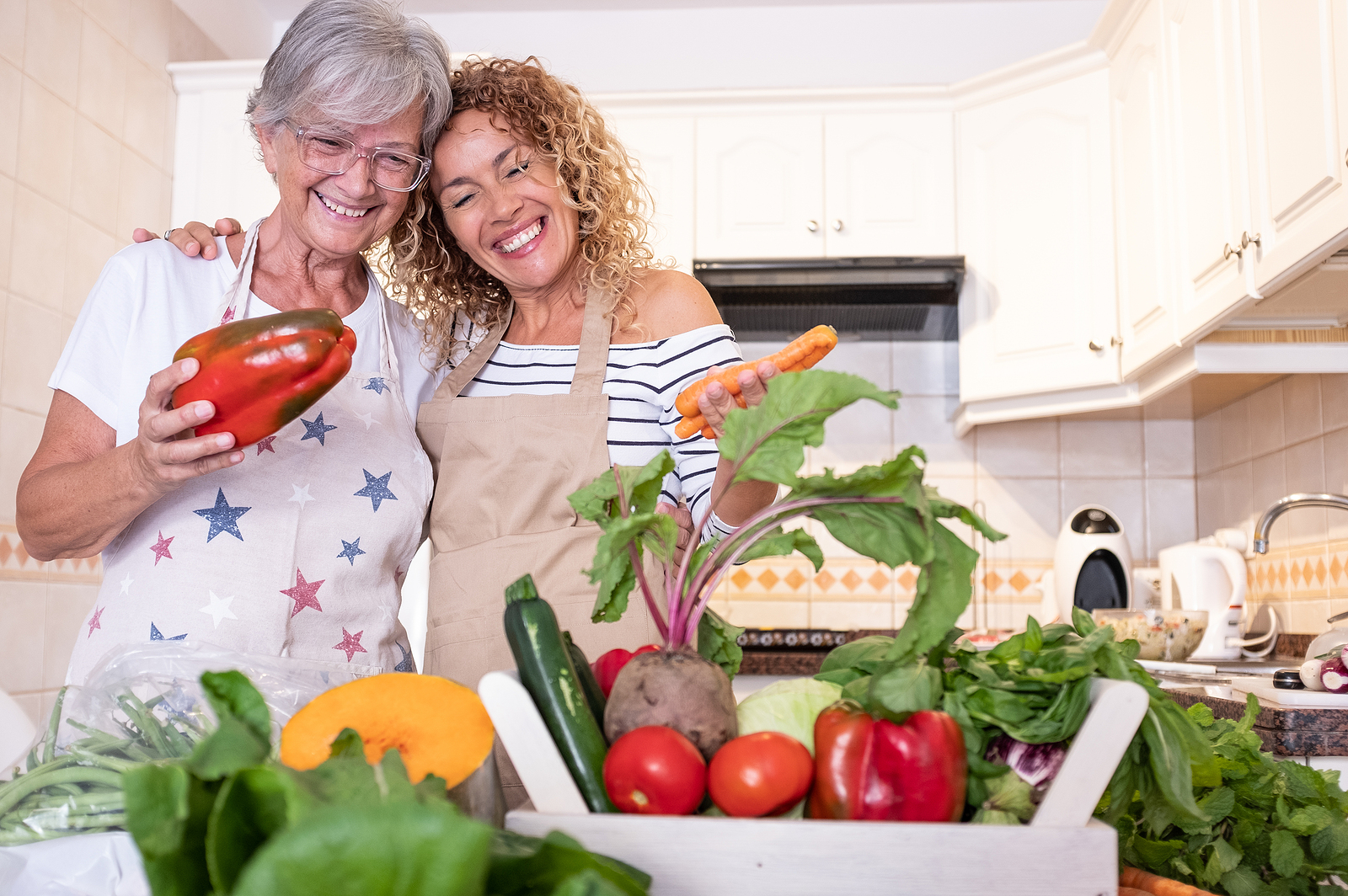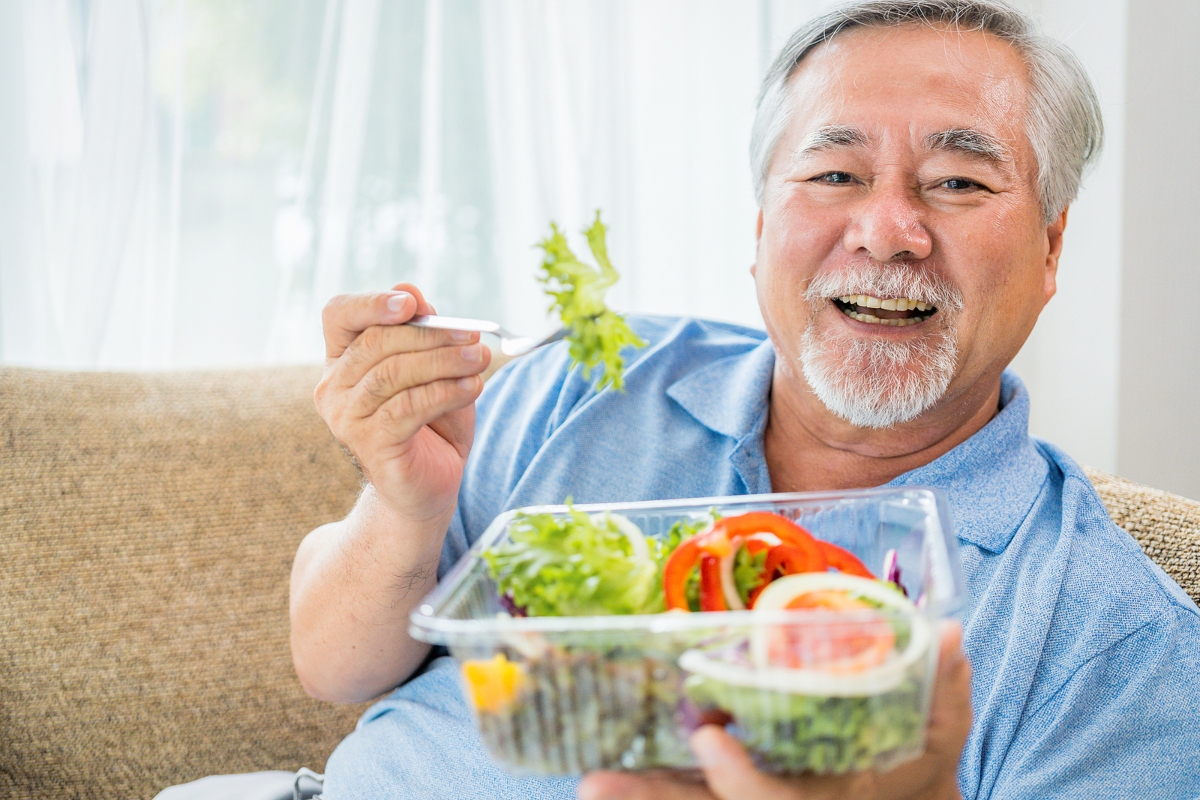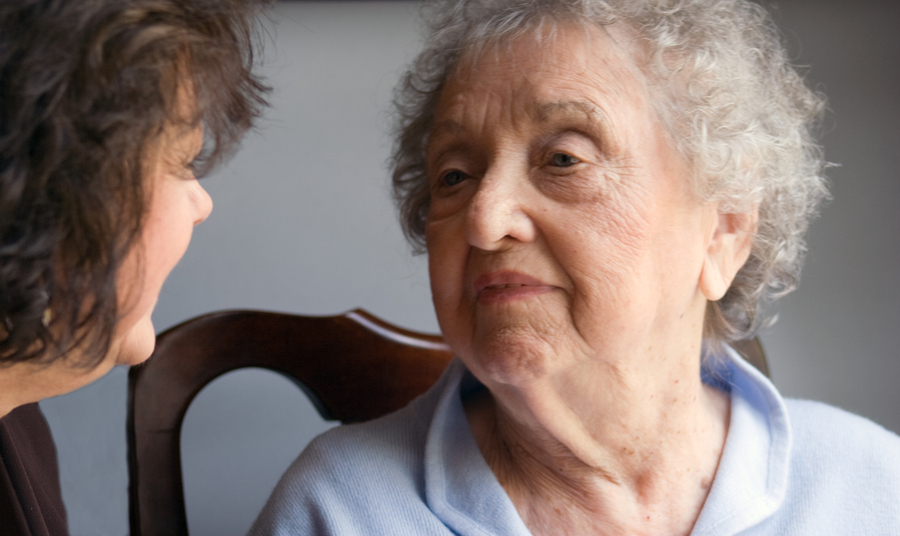Vegetables are full of nutrients, which is why the most common recommendation for people who want to be healthier is to eat plenty of vegetables every day. For seniors, appetite constraints and other issues might change how they eat and what they’re able to eat. It’s a good idea to try as many of the healthiest vegetable options that they possibly can. Home care providers can help by making some of these vegetables as appealing as they can be.
Dark Leafy Greens
Dark leafy greens are packed with tons of nutrients. They’re high in iron, calcium, potassium, magnesium, and tons of vitamins. Per calorie, they offer a lot of nutritional value. They’re also high in fiber, which is great for seniors who want to eat more fiber every day. Dark leafy greens are great in a salad or as a topper for sandwiches or an additive to omelets, soups, and more.
Broccoli, Cauliflower, and Brussels Sprouts
Cruciferous vegetables like cauliflower, broccoli, and brussels sprouts offer tons of nutritional value, too. They’re anti-inflammatory, fill of antioxidants, and are rumored to have anti-cancer capabilities. Roasting any, or all, of these together can make for a tasty and nutritious dish. If cruciferous vegetables create indigestion, it might be because they’re so high in fiber. Adding them slowly to dishes and ramping up intake can help. Elder care providers can adjust recipes depending on seniors’ needs.
Carrots
Carrots are filled to the brim with beta carotene. It’s what causes them to be orange in color, and it converts to vitamin A as the carrots are digested. Plenty of vitamin A helps the immune system stay strong and it also helps eyes and skin to stay healthy. Seniors might want to try carrots raw with some salad dressing for dipping or roasted to really bring out their sweet flavor.
Sweet Potatoes
Potatoes in generally are very nutritious, but sweet potatoes might have a slight edge. Like carrots, they have a lot of beta carotene, which causes their orange color. But they also have a lot of vitamin C, potassium, and fiber. The antioxidants in sweet potatoes cause them to be anti-inflammatory, which is good news for older adults.
Beans
Beans of all types are high in fiber, but they’re also high in iron. They’re full of protein, and can substitute for meat in some dishes. Eating a variety of beans has enormous health benefits and seniors can try all sorts of beans in salads, soups, casseroles, and more. Incorporating beans into at least one meal a day gives seniors a big fiber boost.
Beets
Beets are an acquired taste for some people, but they’re rich in vitamin C, folate, and potassium, among other nutrients. They may also help to lower high blood pressure and improve blood circulation, which is great news for seniors with heart conditions. Like some of the other vegetables listed, they’re high in fiber and they also have a lot of water in them, making them great for hydrating seniors.
Eating a healthier diet doesn’t have to be complicated. Home care providers can help seniors to find healthy vegetables that they really like, and then incorporate those into more meals.
If you or an aging loved one are considering home care in Woodbury, MN, and the surrounding areas, please contact the friendly staff at CareBuilders at Home Minnesota. Call today 612-260-2273.









